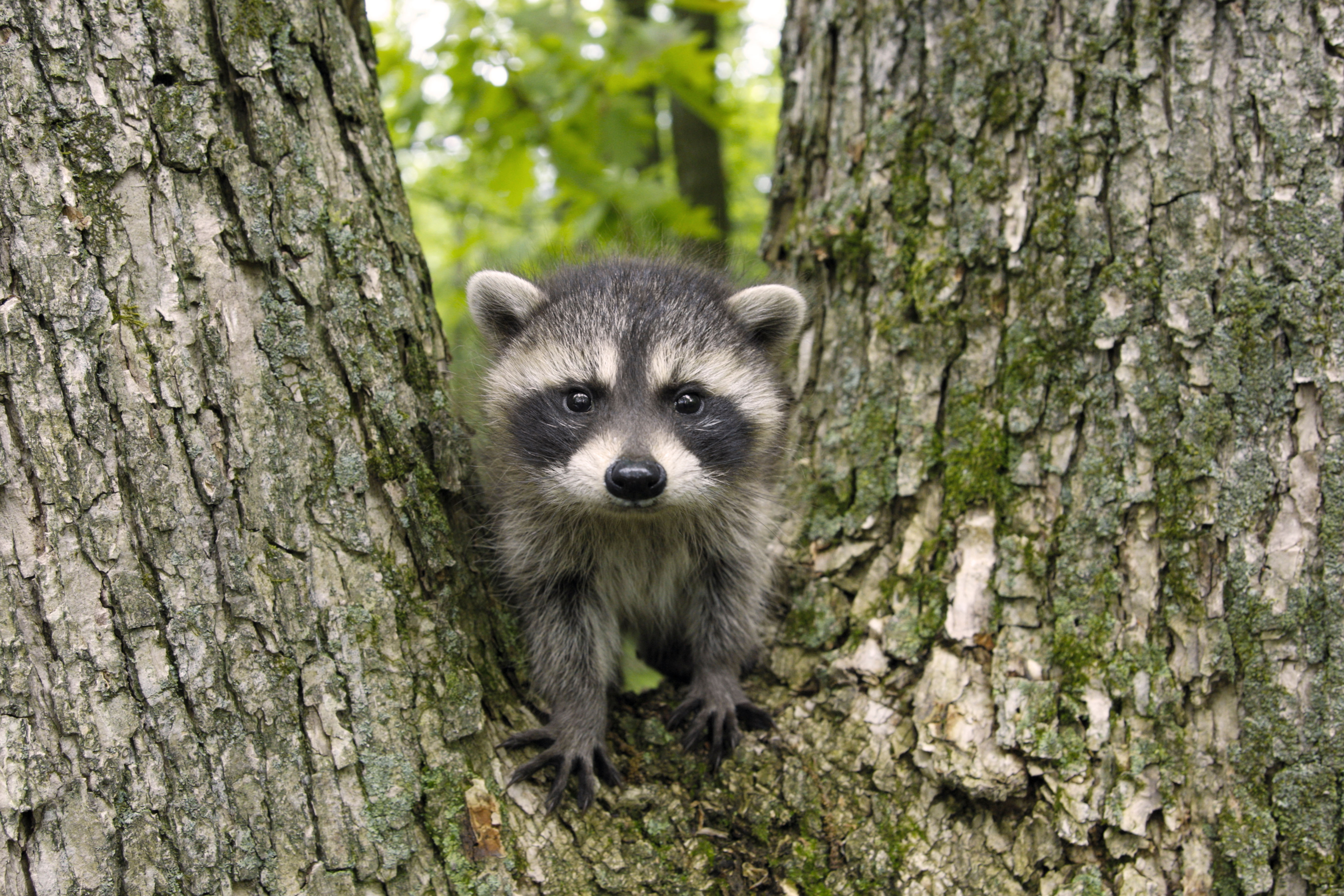How to get rid of raccoons – safe, humane methods experts use, plus smells they hate
Learn how to get rid of raccoons humanely before these night time invaders take up residence in or around your home


Design expertise in your inbox – from inspiring decorating ideas and beautiful celebrity homes to practical gardening advice and shopping round-ups.
You are now subscribed
Your newsletter sign-up was successful
Want to add more newsletters?

Twice a week
Homes&Gardens
The ultimate interior design resource from the world's leading experts - discover inspiring decorating ideas, color scheming know-how, garden inspiration and shopping expertise.

Once a week
In The Loop from Next In Design
Members of the Next in Design Circle will receive In the Loop, our weekly email filled with trade news, names to know and spotlight moments. Together we’re building a brighter design future.

Twice a week
Cucina
Whether you’re passionate about hosting exquisite dinners, experimenting with culinary trends, or perfecting your kitchen's design with timeless elegance and innovative functionality, this newsletter is here to inspire
Visits from raccoons are a nightly occurrence for many of us, and while they're cute-looking, assuming you ever get to spot them, they can be hell to live alongside, noisily upending trash cans in the search for food, wreaking havoc in the garden, ruining the lawn, annoying pets, eating food you leave out for garden birds, making off with domestic chickens, and even damaging the fabric of your home.
If these signs aren't enough of a clue that you have an infestation, you may spot their tracks on damp ground or their dark-colored, cylindrical-shaped droppings. And you may have been woken by their nightly noises, which in turn will have no doubt woken your dog, and perhaps the whole neighborhood.
So, how do you get rid of raccoons? 'There are methods you can use that will kill raccoons, however, unlike when you are getting rid of mice, whose numbers can multiply alarmingly quickly, we would advise a humane approach that's more about removal or deterrence,' says Homes & Gardens' Gardens Editor Rachel Crow. 'The approaches you take depend on where the raccoons are on your property, the time of year, whether there's a mother and babies, and the strength of the remedies you want to use.'
Below, we take you through the options, many of which are surprisingly simple.
How to get rid of raccoons in the yard
To be fair to raccoons, they don't know they're in your yard, ripping up your prize flowers, invading your lawn, making off with your chickens, laying waste to your bird food, overturning your garbage and nesting beneath your deck. But however much we want to indulge in that 'live-and-let-live' approach with wildlife, there comes a time when their visits feel like destructive invasions and they have to go.
So how to get rid of raccoons in the yard – or at least deter them from taking up residence and using it as a self-service buffet? Unlike when you try to get rid of squirrels, they are more easily put off. These are the best options:
- Remove their food sources: this means getting a pest controller to rid the lawn of the grubs that live there – if there are fewer of these to snack on raccoons are less likely to come back; it also means ensuring the chicken coop is impenetrable; dog food is brought indoors; bird food is hung high on narrow poles, and any on the ground is tidied up nightly; and garbage cans are sealed and locked. The latter will also assist in getting rid of rats.
- Install raccoon-detecting security lighting: these nocturnal animals will be scared off by sudden, bright light.
- Sprinkle smells raccoons hate on the ground around the house and yard – more on these below.
How to get rid of raccoons in the attic and on the roof
Getting rid of raccoons in the attic isn't as simple as it sounds. 'Raccoons are in your attic because they have found a safe nesting place for themselves and their babies – it‘s the same with squirrels in the attic. And while If you have raccoons in the attic, you will be worried about damage and noise, it’s likely a female with babies, and aggressive tactics will leave the babies defenceless,' says Rachel Crow. Instead, try this:
Design expertise in your inbox – from inspiring decorating ideas and beautiful celebrity homes to practical gardening advice and shopping round-ups.
- Wait until nesting is over (raccoon babies are born between January and June) and they'll need a few weeks to grow. At this point, speak to an experienced pest controller who can remove them safely and relocate them humanely.
- Stop them getting in in the first place by sealing any access points around your roof. Using a tough galvanized wire mesh will make it really difficult for them to enter.
- Make the attic unwelcoming: they love to nest somewhere comfortable, just like we do, so don't provide them with any opportunities for bedding or food, and do use some of the home remedies to create odors they hate (more on these below) to deter them from entering.
Getting rid of raccoons on the roof or in the chimney should help prevent them from getting up into the attic in the first place, though they are great climbers so you may find this difficult. However it's worth the effort since they will damage roofing materials and attempt to nest in vents and chimneys if they can't nest in the attic, which is far from desirable through to downright dangerous.
- Deter raccoons from coming back to your garden by removing potential food sources. If they have no snacks to return to, they're less likely to look for shelter in the house.
- Look to your backyard landscaping for possible routes to the roof. Everything from climbers to trees are an access opportunity. Trim or remove them to make life harder for a raccoon intent on exploration.
- Do not be tempted to climb on to the roof – that's potential for disaster without the right safety precautions. Instead, hire a professional company to remove the raccoons for you.
- Seal the chimney and vents with wire mesh to stop the raccoons from nesting in them.
How to get rid of raccoons from under the house or deck
Just as when you are suffering an invasion of raccoons in your attic, it's likely that raccoons under your house or deck are there because they are nesting. Many of the points used to keep them out of your yard and attic stand. These include:
- Waiting until nesting is over or asking an experienced pest controller to remove and relocate them humanely.
- Removing their food sources around the house and yard, from bird food to garbage.
- Putting motion-detecting lighting where they have invaded.
- Sprinkling smells raccoons hate around the basement and deck – more on these below.
- Sealing access points all around your home with tough galvanized wire mesh.
- Removing any potential bedding opportunities.
How to get rid of raccoons in house walls
Getting rid of raccoons in walls is much more complicated, but it's a must-do: raccoons are noisy at night and will damage wiring and break up insulation to make beds. If they are in the walls, again, they no doubt have babies, but we suspect you are less likely to be patient and wait out their nesting season. The best option is to call in a professional pest controller with experience of raccoon management. They can remove them safely, leaving you behind with the job of working out how they got in and sealing the gaps so that the, or their raccoon friends, don't get in in future.
What smell will keep raccoons away?
Like other pests that visit your home and garden, raccoons have an intensely sensitive sense of smell. This is often why they are attracted to your home in the first place: because they can sniff out garbage, pet food and grubs. However, this incredible sense of smell can also be used against them with deterrents that we don't find offensive, but they really do. Below, we list the scents that raccoons hate and that you can use to discourage them from your home and garden:
- Garlic: crush it up, juice it, or buy garlic oil and sprinkle it around your home and garden. Or put your concoction in a bowl by entry points they've worked their way though before to deter them from coming in again.
- Hot pepper: think what this does to your nose; this is an irritating spice to raccoons, they hate the smell.
- Peppermint: sure, you can plant this around your yard and entry points to your house to deter them, but a bowl of essential oil will give off a strong scent that's enough to keep them away.
- Epsom salts: again, raccoons hate this, so put it where they tend to head for around the garden and house.
- Onions: the scent of fresh onions is enough to make our eyes water, so you can imagine that raccoons hate it.
- Vinegar: just like other pests, raccoons hate the smell of vinegar, so this is another home remedy you can use to keep them away.
Note that these deterents will discourage raccoons, but need to be used in hand with some of the other methods for getting rid of raccoons, including professional pest control.
What is a home remedy to get rid of raccoons?
There are a number of smells that raccoons hate that can be used to deter them. These include raw garlic, onion and chilli pepper. Mix them up in a bowls and put them around your home to deter them. Note though that the best ways to get rid of them require more thorough approaches, including sealing entry points, using bright motion-detector lights at night and professional removal.
Will vinegar keep raccoons away?
Vinegar will deter raccoons from returning time and again to your home and yard since they hate the smell. Like if you were using peppermint oil to deter them, you can soak a number of rags with vinegar then put them in key access points around your home and yard to keep them away, albeit until the smell fades.

Lucy Searle has written about interiors, property and gardens since 1990, working her way around the interiors departments of women's magazines before switching to interiors-only titles in the mid-nineties. She was Associate Editor on Ideal Home, and Launch Editor of 4Homes magazine, before moving into digital in 2007, launching Channel 4's flagship website, Channel4.com/4homes. In 2018, Lucy took on the role of Global Editor in Chief for Realhomes.com, taking the site from a small magazine add-on to a global success. She was asked to repeat that success at Homes & Gardens, where she also took on the editorship of the magazine. Today, Lucy works as Content Director across Homes & Gardens, Woman & Home, Ideal Home and Real Homes.